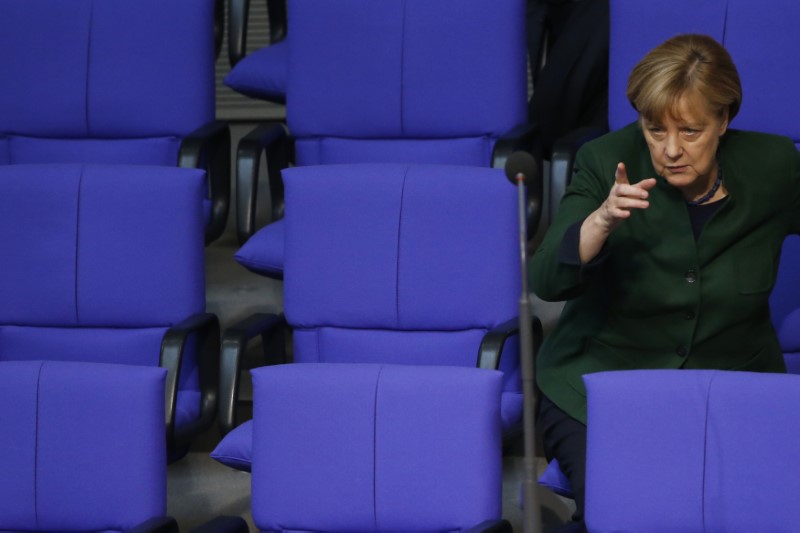BERLIN (Reuters) - The European Union and Turkey must honour their commitments to each other, German Chancellor Angela Merkel said on Friday, in a bid to cool a row threatening a key migration deal.
She spoke a day after members of the European Parliament passed a non-binding resolution to freeze talks on Turkey joining the bloc, as a protest against Ankara's crackdown on dissent after a failed coup in July.
Turkish President Tayyip threatened to unleash a new wave of migrants on Europe in response - suggesting he might scrap a deal to keep hundreds of thousands of migrants inside his borders in return for the promise of accelerated EU membership talks, visa-free travel for Turks in Europe and financial aid.
"The refugee deal with Turkey, I think, this agreement is in the mutual interest of both sides," Merkel told members of her conservative Christian Democratic Union (CDU) during a regional conference in the northern city of Neumuenster.
"And that's why we as Europeans must meet our commitments and Turkey must do the same," Merkel said, adding that the deal had helped to control the influx of migrants and fight human trafficking.
Asked by a CDU member if she had an alternative plan in case the deal with Ankara should fall apart, Merkel said: "I have no plan B... it's difficult but I'm working hard to make sure that this plan is being implemented. And I'm also working hard to make sure we reach similar agreements with other countries."
Most other EU states back continued engagement with Turkey, despite their concerns about its human rights record.
"It is important that we keep talking," German Foreign Ministry spokeswoman Sawsan Chebli told journalists earlier on Friday.
"It is important that we do not freeze the accession negotiations because that would only further damage the relationship between Turkey and Europe, and that would not be in the interest of Turkey or of Europe," Chebli added.

Turkish authorities have detained or dismissed more than 125,000 people - including soldiers, academics, judges, journalists and Kurdish leaders - over their alleged backing for the coup, in what opponents, rights groups and some Western allies say is an attempt to crush all dissent.